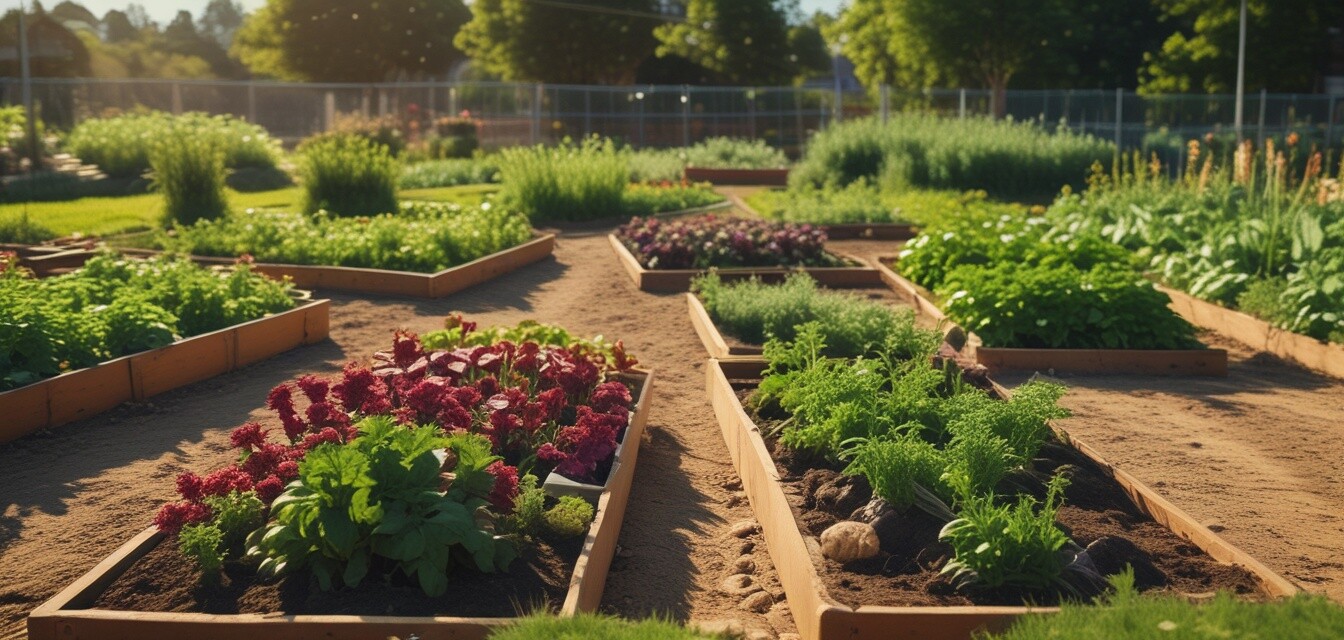
Gardening's Role in Food Security
- Community gardening helps improve access to fresh produce.
- Gardening promotes sustainable practices, reducing dependency on large-scale agriculture.
- Local gardening initiatives can strengthen community ties and support education on food production.
- Home gardening reduces food waste and promotes healthy eating habits.
- Gardening can play a vital role in addressing food deserts within urban areas.
The importance of gardening in ensuring food security cannot be overstated. In a world where food deserts and access to fresh produce are growing concerns, community gardening initiatives have emerged as vital solutions. This article delves into how different gardening practices contribute to food security in local communities, examining their benefits and impact.
The link between gardening and food security
Food security is defined as the condition in which all people have physical, social, and economic access to sufficient, safe, and nutritious food. Gardening plays a direct role in achieving this goal. In recent years, community gardens, home gardens, and urban gardening initiatives have gained traction as effective ways to boost food availability in local areas.
1. Community gardens
Community gardens allow individuals to come together to cultivate land collectively. These gardens not only provide food but also create a sense of belonging and cooperation among participants. Here's a closer look at how community gardens contribute to food security:
| Benefit | Description |
|---|---|
| Access to fresh food | Community gardens provide direct access to fresh fruits and vegetables, particularly in urban areas where grocery stores may be scarce. |
| Education | Gardening programs often provide educational opportunities about sustainable practices and nutrition. |
| Social cohesion | These gardens foster relationships and community spirit, bringing diverse groups together. |
2. Home gardening
Home gardening is another vital practice that supports food security. Growing food at home allows families to supplement their diets with fresh produce. Some benefits of home gardening include:
- Reduced food costs: By growing their own food, families can save money on grocery bills.
- Control over food production: Home gardeners can choose to grow organic, pesticide-free produce.
- Increased variety in diet: Home gardening encourages the cultivation of diverse plants.
- Food waste reduction: Growing only what is needed minimizes surplus food waste.
Innovative urban gardening initiatives
The rise of urban gardening initiatives has highlighted the creativity and adaptability of communities in addressing food security. Techniques like vertical gardening and rooftop gardening make it possible to cultivate food in limited spaces. The following table outlines innovative approaches:
| Technique | Description | Benefits |
|---|---|---|
| Vertical gardening | Growing plants upwards on structures to save space. | Maximizes limited areas; efficient for small urban lots. |
| Rooftop gardens | Utilizing flat roofs to grow vegetables and herbs. | Improves air quality; reduces urban heat island effect. |
| Hydroponics | Growing plants in a water-based nutrient solution instead of soil. | Requires less space; can be implemented indoors. |
Challenges and opportunities
While the benefits of gardening for food security are clear, several challenges remain. Some of these include:
- Access to land: Not everyone has space to garden, especially in urban areas.
- Soil contamination: Urban soil can often be contaminated with pollutants.
- Education and resources: Availability of knowledge about gardening techniques may be limited.
However, solutions are emerging. Community programs are increasingly focused on educating residents about urban gardening and providing resources to overcome these challenges. Collaborations with local governments and organizations can provide funding and support to sustain these initiatives.
Conclusion
Gardening, whether through community initiatives or home practices, plays a crucial role in addressing food security. By encouraging local food production and cooperative efforts, gardening contributes to healthier, more sustainable communities. Join a local gardening initiative or start your own home garden to advocate for food security in your area, and embrace the many benefits that come with it.
Tips for getting started with gardening
- Research local gardening clubs to connect with like-minded individuals.
- Start small: Grow easy-to-care-for plants like tomatoes or herbs.
- Utilize local resources and workshops to improve your gardening skills.
- Consider organic gardening practices to promote health and sustainability.
- Share your harvests with neighbors to foster community spirit.
Pros
- Improves access to fresh produce.
- Encourages community building and social interaction.
- Supports sustainable practices.
- Provides educational opportunities for participants.
Cons
- Land access issues can limit participation.
- Initial setup costs can be a barrier for some.
- Requires ongoing commitment and maintenance.
To further explore how gardening can impact food security and discover more tips for creating your own productive garden, check out our buying guides on gardening essentials and the latest news and trends in the gardening community.